-
OUP Women in Philosophy reading list
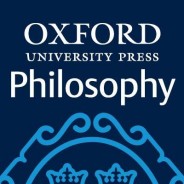
Against Marriage features in the Oxford University Press Women in Philosophy reading list.
“This March, in recognition of Women’s History Month, the OUP Philosophy team will be celebrating Women in Philosophy. The philosophy discipline has long been perceived as male-dominated, so we want to recognize some of the incredible female philosophers from the past including Simone de Beauvoir, Mary Wollstonecraft, and Hannah Arendt, plus female philosophers doing great things in 2018 like Martha Nussbaum, Clare Chambers, and Kate Manne.”
You can see the whole reading list here.
-
Routledge Companion to Feminist Philosophy reviewed in Hypatia Reviews Online
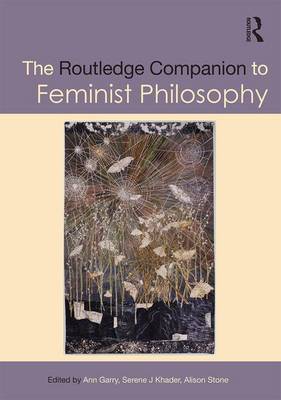 I have a chapter on feminism and liberalism in The Routledge Companion to Feminist Philosophy, edited by Ann Garry, Serene J. Khader, and Alison Stone (Routledge, 2017). The volume has been reviewed by Amy Marvin in Hypatia Reviews Online. You can read the full review here.
I have a chapter on feminism and liberalism in The Routledge Companion to Feminist Philosophy, edited by Ann Garry, Serene J. Khader, and Alison Stone (Routledge, 2017). The volume has been reviewed by Amy Marvin in Hypatia Reviews Online. You can read the full review here.“The Routledge Companion to Feminist Philosophy presents an exciting, comprehensive, and original pluralist presentation of feminist philosophy that is a much-needed update to existing feminist philosophy companions. Students, scholars, independent researchers, and departments interested in feminism and philosophy would do well to make sure they have access to this volume, and it should be a relevant resource for years to come.”
-
Quoted on marriage in The Guardian
Rose Hackman quotes me in a long-form piece on marriage in The Guardian. You can read the whole article here.
” “Married men gained rights over women’s bodies, property and children,” confirms Clare Chambers, a lecturer in philosophy at the University of Cambridge who wrote a book arguing for an end to state-recognized marriage. “Traditionally [marriage] has maintained legal gender inequality, and it has done so to the benefit of men.”
“Chambers concedes that many formal inequalities tied to marriage have been denounced and revoked. Marital rape was outlawed in the UK in 1991 and in the US in 1993 – hard to believe there was ever an exemption – and same-sex marriage was legalized in 2014 and 2015 respectively.”
-
Against Marriage wins APSA’s David Easton Award
 I am delighted and honoured to learn that Against Marriage: An Egalitarian Defence of the Marriage-Free State has won the 2018 David Easton Award of the American Political Science Association (APSA). APSA say: “The David Easton Award is given for a book that broadens the horizons of contemporary political science by engaging issues of philosophical significance in political life through any of a variety of approaches in the social sciences and humanities.”
I am delighted and honoured to learn that Against Marriage: An Egalitarian Defence of the Marriage-Free State has won the 2018 David Easton Award of the American Political Science Association (APSA). APSA say: “The David Easton Award is given for a book that broadens the horizons of contemporary political science by engaging issues of philosophical significance in political life through any of a variety of approaches in the social sciences and humanities.”The citation for the Award is as follows:
“Clare Chambers’ Against Marriage: An Egalitarian Defence of the Marriage-Free State and Barbara Arneil’s Domestic Colonies: The Turn Inward to Colony won recognition from our committee because these two books exhibit logical rigor, clarity of structure, lucidity of thought, and crisp prose. Just as important, they tackle politically significant problems: in the first case, the liberal democratic state’s sanctification of one form of intimate social relations at the expense of others, and in the second case, the challenges that Western domestic colonies in the modern past pose for understandings of colonialism in the present. The two books deftly situate themselves against the backdrop of larger literatures on, respectively, marriage and colonialism, and they carve out provocative positions that draw on those literatures while moving beyond their existing limits of thought and action. As all true provocations should do, they are sure to stimulate new analyses and arguments in response to the ideas they lay out.
“Clare Chambers breathes new life into radical feminist critiques of marriage and classical liberal critiques of states that give their imprimatur to specific notions of the good life in order to argue that state-recognized marriage is fundamentally unjust. This may seem a surprising claim in an era in which social and legal acceptance of same-sex marriage is increasing. However, Chambers’ acute analysis, which she intends, as she puts it at the start, “for everyone, regardless of marital status,” shows how even struggles for the state’s recognition of gay marriage elide injustices internal to heterosexual marriage and external injustices of marriage for those who cannot or choose not to be married, even once those struggles have been won. Chambers argues that the practical and symbolic effects of state-endorsed marriage inevitably privilege some people and some ways of life over others, violating both feminist and liberal principles. While not opposed to marriage as a social relationship, she powerfully demonstrates the ways that state-endorsed marriage undercuts equality and freedom, and the insufficiency of even the most progressive defenses of marriage as a politically credentialed institution. Equally impressive is the constructive aspect of her book. Chambers is a critic of state sanctifications of oppressive and/or exclusionary forms of intimate life, but she is an advocate of state power that supports individuals equally in their day-to-day endeavors and relationships. Her theory, which is practical yet visionary, delineates how practices that marriage bundles together (child-rearing, co-habitation, caring for elderly parents, joint property ownership, etc.) might be unbundled and justly regulated by the state to protect those engaged in or affected by them without privileging married couples. Her book demonstrates how the strengths of analytical political philosophy can be powerfully mobilized as a resource for motivating political change.
“Barbara Arneil presents an analysis that contributes conceptual innovation to current debates on colonialism and imperialism, innovations that are at once suggested and bolstered by her careful archival and secondary research into “domestic colonies.” The cases of domestic colonialism that Arneil highlights are agrarian labour colonies, farm colonies, and anti-capitalist or otherwise radical utopian communities that were created in North America and Europe, putatively to empower the idle poor, the disabled, and religiously, politically, and/or racially marginalized minority groups. In her investigations into such colonies, which in North America were implicated in settler colonial practices but are not reducible to those practices, she offers an exemplary model of how detailed historical work can drive conceptual rethinking in political theory. In analyzing the domestic colony as a technique of power underwritten by a logic of (often but not always coerced) improvement rather than a logic of exploitative domination, her work controversially disentangles imperialism and colonialism as a prelude to complicating our understanding of colonization, decolonization, and the postcolonial. While explicitly acknowledging the grave injustices of settler colonialism and imperialism in comparison with domestic colonialism, Arneil reveals the benefits of situating imperialism, settler colonialism, and domestic colonialism as sometimes intersecting and sometimes contrasting nodes of a complex “transnational colonial network.” In this way, her work deepens both our grasp of the colonial past and re-problematizes our relation to colonialism’s long aftermath and continuing presence.”
-
Danny Reviews Against Marriage
You can read the review here.
“I found Chambers persuasive: Against Marriage compelled me to rethink some of my ideas on the subject and brought much greater precision to others. And even those who disagree with much more of it will have to engage with it, as an integrated and reasonably comprehensive analysis of how the state should approach marriage.”
-
The American Conservative on Against Marriage
 They don’t like it. See here.
They don’t like it. See here.Note that the article does not always read the argument of the book accurately.
- all posts on culture and religion, all posts on liberalism, all posts on the body and beauty, liberalism, multiculturalism and religion, the body
Reasonable Disagreement and the Neutralist Dilemma
 Chambers, Clare, “Reasonable Disagreement and the Neutralist Dilemma: Abortion and circumcision in Matthew Kramer’s Liberalism with Excellence” in The American Journal of Jurisprudence (May 2018).
Chambers, Clare, “Reasonable Disagreement and the Neutralist Dilemma: Abortion and circumcision in Matthew Kramer’s Liberalism with Excellence” in The American Journal of Jurisprudence (May 2018).You can read the paper here.
Abstract: This paper starts by investigating the idea of reasonable disagreement. It then considers Matthew Kramer’s argument that there is no neutral solution available to the disagreement over abortion. The paper argues that Kramer’s account has wider application, and identifies a neutralist dilemma. The neutralist dilemma applies when, of two policy options available to the state, one is unreasonable. It follows that the state should enact only the reasonable policy. However, in a neutralist dilemma the fact of reasonable disagreement due to the burdens of judgment means that it is not possible for the state to act at all, whether legislating or not, without deviating from neutrality. The paper develops the concept of the neutralist dilemma and then applies it to another case discussed by Kramer: infant circumcision. The paper argues that the debate over infant circumcision can be framed as a neutralist dilemma, but that the most plausible resolution of the dilemma results in an argument in favor of the legal prohibition of the practice. This is a surprising result, since most liberal states do not restrict circumcision and since prohibition of circumcision might initially appear to be non-neutral or even illiberal; however it is consistent with the tenets of neutralist liberalism.
- Against Marriage, all posts on feminism, all posts on liberalism, all posts on marriage, media, read
Fabian Society on Against Marriage
 Andrew Harrop, General Secretary of the Fabian Society, reviewed Against Marriage in Fabian Review, May 2018. You can read the full review here.
Andrew Harrop, General Secretary of the Fabian Society, reviewed Against Marriage in Fabian Review, May 2018. You can read the full review here.“Marriage makes me uncomfortable, whether the reason is political, historical, cultural or aesthetic. No matter how many married couples I see living modern equal relationships, for me, the whole concept is tainted by its patriarchal past. But I say ‘for me’ with good reason, as I have dozens of friends and comrades who disagree. This is a fault-line issue that divides socialists and feminists amongst themselves. In Against Marriage, Clare Chambers makes the case for why egalitarians and liberals should reject marriage. It is political philosophy at its most practical and readable.”
-
Against Marriage reviewed in Political Theory
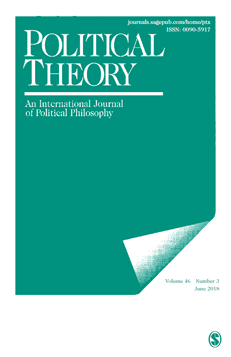 Against Marriage is reviewed by Tamara Metz, author of Untying the Knot, in Political Theory. You can read the full review here. An excerpt follows.
Against Marriage is reviewed by Tamara Metz, author of Untying the Knot, in Political Theory. You can read the full review here. An excerpt follows.“This is a distinct and important contribution to an increasingly crowded field of liberal political philosophy on marriage and the state and, perhaps most interestingly, to our understanding of the liberal project broadly. … Where other liberals seek more vigorously to balance competing demands of freedom and equality, or emphasize freedom, Chambers hews rigorously to an egalitarian position. You won’t find another book that does this so effectively or by way of such productive engagement with existing scholarship. Laying out the egalitarian case in such clear and compelling terms, Chambers highlights the challenges it presents to the liberal side of her liberal feminist equation. In so doing, Against Marriage leaves us wondering just how tenable the liberal feminist project is.”
“Chambers leads us to these questions by bringing us to the edge of the liberal feminist frontier. This alone would make Against Marriage a distinct and important contribution. But, of course, Chambers does more. She offers a compelling vision of why and how to move beyond marriage and points us in the direction of work that needs to be done. All with the grace and graciousness of an analytical philosopher running at full throttle.”
-
Against Marriage on JHIB blog
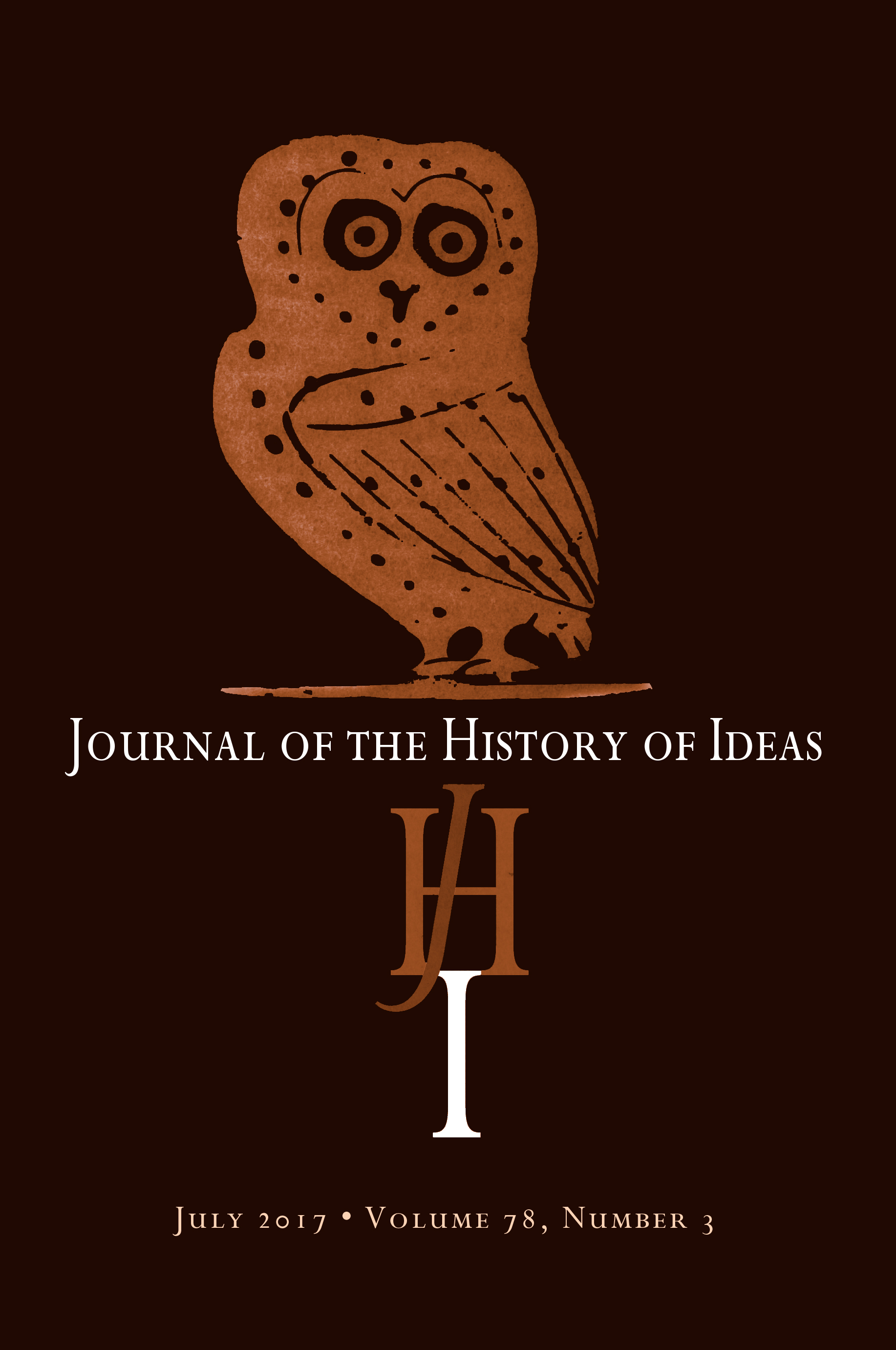 My Aeon article “Against Marriage” was recommended by the Journal for the History of Ideas Blog here.
My Aeon article “Against Marriage” was recommended by the Journal for the History of Ideas Blog here. -
Books
I have written three books: Against Marriage: An Egalitarian Defence of the Marriage-Free State (Oxford University Press, 2017); Sex, Culture, and Justice: The Limits of Choice (Penn State University Press, 2008) and, with Phil Parvin, Teach Yourself Political Philosophy: A Complete Introduction (Hodder, 2013). For more information about each book, including contents and reviews, click the links in the menu above.
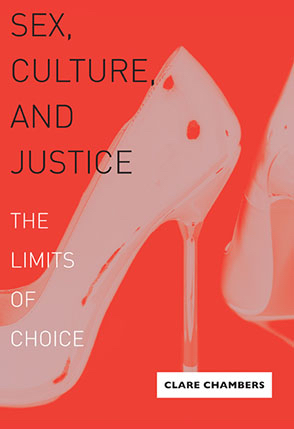
-
Times of India on Against Marriage
 The Times of India featured my Aeon article “Against Marriage” on 22 April 2018. You can read the coverage here.
The Times of India featured my Aeon article “Against Marriage” on 22 April 2018. You can read the coverage here. -
Against Marriage at Aeon
 I have a 3,300 word essay on “Against Marriage” at Aeon magazine. You can read the article here.
I have a 3,300 word essay on “Against Marriage” at Aeon magazine. You can read the article here. -
Neutrality at University of Edinburgh
I presented my paper “Reasonable disagreement and the neutralist dilemma: Abortion and circumcision in Matthew Kramer’s Liberalism with Excellence” at the University of Edinburgh in March 2018. You can read their account of the session on the Just World Institute blog here.
-
Edinburgh Just World Institute blog
The University of Edinburgh Just World Institute blogged about my paper “Reasonable disagreement and the neutralist dilemma: Abortion and circumcision in Matthew Kramer’s Liberalism with Excellence”. You can read the blog here.
-
Against Marriage at APT books
Against Marriage is featured in the New Books By Members section of the US Association for Political Theory. You can see the page here.
-
Ask Me Anything (AMA) on Reddit
 On 16 April I’ll be doing an AMA – Ask Me Anything! – for Reddit Philosophy. You can join in the fun at 12noon EST / 5pm GMT. Read the discussion here.
On 16 April I’ll be doing an AMA – Ask Me Anything! – for Reddit Philosophy. You can join in the fun at 12noon EST / 5pm GMT. Read the discussion here. -
Gli Stati Generali on the “Me Too” movement
 I was interviewed by Valentina Saini for her piece “È L’ALBA DI UN’INTERNAZIONALE FEMMINISTA?” on the Italian news site Gli Stati Generali. You can read the piece, in Italian, here.
I was interviewed by Valentina Saini for her piece “È L’ALBA DI UN’INTERNAZIONALE FEMMINISTA?” on the Italian news site Gli Stati Generali. You can read the piece, in Italian, here.For those who don’t speak Italian I don’t have a translation of the full article, but here are the answers I gave to Valentina Saini’s questions.
VS: In many countries and regions of the world, sexual harassment in the form of a “pat” on a woman’s “butt”, for example, is seen as something innocent and harmless, nothing one should be especially offended by – many women think so too. Why is that? Is women’s body still something that does not belong exclusively to them – culturally speaking?
A (CC): Women and girls are taught from an early age that one of their most important roles is to be attractive, pleasing, submissive and helpful to others. This education comes from many sources: gendered differences in early upbringing, acceptable social roles for men and women, media portrayals of women that focus on their looks, role-models and stereotypes. It is not surprising in this context of gender inequality that some women internalise the role given to them, and think of their bodies as primarily existing to be appraised and used by others. That doesn’t make it acceptable.
Q (VS): The Me Too hashtag arose in the US and rapidly spread in many other parts of the world, meaning that sexual abuse and sexual harassment are a global phenomenon. Is it possible that even in so-called developed countries, sexual harassment in the workplace is subtly interpreted as “the price” women may have to pay to enter a once male-only institution, that is, paid work?A (CC): Sexual abuse and sexual harassment certainly are global. Women know this and have known it for a very long time. Women do not enter the workplace on equal grounds to men. They are multiply disadvantaged by many forms of sexism: sexual harassment, the gender pay gap, the incompatibility of work and family life, stereotyping and discriminatory behaviour. Gender inequality of all forms needs to be dismantled, and the Me Too movement is one important part of the global movement of women and feminists against sexism. -
The Reading Lists
Want to know what books I like? You can read an interview with me by Phil Treagus of The Reading Lists blog here. His questions were fascinating to think about and very hard to answer!
-
Full list of publications
This page gives a simple list of publications. For more information about each work, including abstracts and clickable links, view publications by theme from the drop-down menu above.
* = peer-reviewed
Books
- *Chambers, Clare, Freedom & Equality: Essays on Liberalism and Feminism (Oxford University Press, 2024). 356 pages.
- Chambers, Clare, Intact: A Defence of the Unmodified Body (Allen Lane, 2022; Penguin paperback 2023; e-book and audiobook available). 413 pages.
- *Chambers, Clare, Brian D. Earp, and Lori Watson (eds.), The Routledge Handbook of Philosophy of Sex and Sexuality (Routledge, 2022; paperback 2023; e-book available). 613 pages.
- * Chambers, Clare, Against Marriage: An Egalitarian Defence of the Marriage-Free State (Oxford University Press, 2017; paperback 2019; e-book available). 226 pages.
Winner of the 2018 David Easton Award of the American Political Science Association (APSA). - Chambers, Clare and Phil Parvin, Teach Yourself Political Philosophy: A Complete Introduction (Hodder, 2012). 324 pages.
- *Chambers, Clare, Sex, Culture and Justice: The Limits of Choice (Penn State University Press, 2008; paperback 2009; e-book available). 294 pages.
Policy reports
- Nuffield Council on Bioethics Working Party on Cosmetic Procedures (Chambers a member), Cosmetic Procedures: Ethical Issues (Nuffield Council on Bioethics, June 2017), approx. 200 pages.
Articles and chapters
- *Chambers, Clare, “Making Inequality Visible Without Making it Worse” in Social Policy & Philosophy (Vol. 3 No. 2, 2022)
- *Chambers, Clare, “Conscience and Context” in Thom Brooks (ed.), Political Emotions: Towards a Decent Public Sphere (Palgrave, 2022)
- Chambers, Clare, Brian D. Earp and Lori Watson, “Introduction” to Routledge Handbook of the Philosophy of Sex and Sexuality (Routledge, 2022)
- Chambers, Clare, “Re-Reading A Theory of Justice” in Polity (online first, August 2021)
- *Chambers, Clare, “Respect, Religion, and Feminism: Comments on Lori Watson and Christie Hartley, Equal Citizenship and Public Reason: A Feminist Political Liberalism in Journal of Applied Philosophy (September 2020)
- Chambers, Clare, “Sex, Money, and Luck in Sport” in Journal of Medical Ethics Vol. 46 No. 9 (2020)
- *Earp, Brian D., Clare Chambers, et al, “Medically unnecessary genital cutting and the child’s right to bodily integrity: an international expert consensus statement” in American Journal of Bioethics (2019).
- *Chambers, Clare, “Medicalised genital cutting and the limits of choice” in Female Genital Cosmetic Surgery: Interdisciplinary Analysis and Solution, edited by Sarah Creighton and Lih-Mei Lao (Cambridge University Press, 2019).
- *Chambers, Clare, “Reasonable Disagreement and the Neutralist Dilemma: Abortion and circumcision in Matthew Kramer’s Liberalism with Excellence” in The American Journal of Jurisprudence (May 2018)
- *Chambers, Clare, “Feminism and Liberalism” in Ann Garry, Serene J. Khader and Alison Stone (eds.), The Routledge Companion to Feminist Philosophy (Routledge, 2017) pp. 652-664, 13 pages.
- *Chambers, Clare, “Judith Butler’s Gender Trouble” in Jacob T. Levy (ed.), Oxford Handbook of Classics in Contemporary Political Theory (Oxford University Press, online first 2017) no page numbers, 20 pages.
- Chambers, Clare and Richard Marshall, “Sex, Culture, Justice” in Richard Marshall (ed.), Ethics at 3:AM: Questions and Answers on How to Live Well (Oxford University Press, 2017) pp. 296-303, 8 pages.
- *Chambers, Clare, “Judging Women: Twenty-five Years Further Toward a Feminist Theory of the State” in Feminist Philosophy Quarterly 3 No. 2 (2017). Symposium on Catharine MacKinnon’s book Toward a Feminist Theory of the State, with response by MacKinnon pp. 1-21, 21 pages.
- Chambers, Clare, “Ideology and Normativity” in Aristotelian Society Supplementary Volume 91 No. 1 (2017) pp. 175-195, 21 pages.
- *Chambers, Clare, “The Limitations Of Contract: Regulating Personal Relationships In A Marriage-Free State” in Elizabeth Brake (ed.) After Marriage: Rethinking Marital Relationships (Oxford University Press, 2016) pp. 51-83, 33 pages.
- Chambers, Clare, “The Marriage-Free State” in Proceedings of the Aristotelian Society CXIII No. 2 (2013) pp. 123-143, 21 pages.
- *Chambers, Clare, “ “The Family as a Basic Institution:” A Feminist Analysis of the Basic Structure as Subject” in Ruth Abbey (ed.), Feminist Interpretations of Rawls (Penn State University Press, 2013) pp. 75-95, 21 pages.
- *Chambers, Clare, “Feminism” in The Oxford Handbook of Political Ideologies, edited by Michael Freeden, Lyman Tower Sargent, and Marc Stears (Oxford University Press, 2013) pp. 562-582, 21 pages.
- *Chambers, Clare and Phil Parvin, “What Kind Of Dialogue Do We Need? Gender, Deliberative Democracy And Comprehensive Values” in Jude Browne (ed.) Dialogue, Politics and Gender (Cambridge University Press, 2013) pp. 198-226, 29 pages.
- *Chambers, Clare, “Each outcome is another opportunity” in Politics, Philosophy and Economics (PPE) Vol. 8 No. 4 (2009) pp. 1-27, 27 pages.
- *Chambers, Clare and Phil Parvin, “Coercive redistribution and public agreement: re-evaluating the libertarian challenge of charity” in Critical Review of International Social and Political Philosophy (CRISPP) Vol. 12 No. 4 (2009) and Matt Matravers and Lukas Meyer (eds.), Democracy, Equality, and Justice (Routledge, 2009) pp. 93-114, 22 pages.
- *Chambers, Clare, “Inclusivity and the constitution of the family” in Canadian Journal of Law and Jurisprudence (2009, 1) pp. 135-52, 17 pages.
- *Chambers, Clare, “Gender” in Catriona McKinnon (ed.) Issues in Political Theory (Oxford University Press, 2008; 2nd 2011; 3rd ed. 2015; 4th ed. in production), pp. 265-288, 24 pages.
- *Chambers, Clare, “Torture as an evil: Response to Claudia Card” in Criminal Law and Philosophy Vol. 2 No. 1 (January 2008) pp. 17-20, 4 pages.
- *Chambers, Clare, “Masculine domination, radical feminism and change” in Feminist Theory 6 No. 3 (December 2005) pp. 325-346, 22 pages.
- *Chambers, Clare, “Autonomy and equality in cultural perspective: Response to Sawitri Saharso” in Feminist Theory 5 No. 3 (December 2004) pp. 329-32, 3 pages.
- *Chambers, Clare, “Are breast implants better than female genital mutilation? Autonomy, gender equality and Nussbaum’s political liberalism” in Critical Review of International Social and Political Philosophy (CRISPP) Vol. 7 No. 3 (Autumn 2004) pp. 1-33, 33 pages.
- *Chambers, Clare, “Nation-building, Neutrality and Ethnocultural Justice: Kymlicka’s ‘Liberal Pluralism’” in Ethnicities 3 No. 3 (September 2003) pp. 295-319, 25 pages.
- *Chambers, Clare, “All must have prizes: the liberal case for intervention in cultural practices” in Paul Kelly (ed.) Multiculturalism Reconsidered: Culture and Equality and its Critics (Polity Press, 2002) pp. 151-73, 23 pages.
Shorter pieces for wider audiences
- Chambers, Clare, “Clare Chambers, author of Intact” in Josephine Greywoode (ed.), Why We Read: 70 Writers on Non-Fiction (Penguin Books, 2022).
- Chambers, Clare, and Jack Maden “A Defence of the Unmodified Body: Clare Chambers interview” on Philosophy Break (April 2022) at https://philosophybreak.com/articles/a-defense-of-the-unmodified-body-clare-chambers-interview/
- Chambers, Clare and John C. Brady, “Intact Bodies: The Ambivalence of The Natural and The Normal – John C. Brady in Conversation with Clare Chambers” in Epoché magazine (February 2022) at https://epochemagazine.org/49/intact-bodies-the-ambivalence-of-the-natural-and-the-normal/
- Chambers, Clare, “The Political Power of Your Body” on iai News (11 February 2022) at https://iai.tv/articles/the-political-power-of-your-body-auid-2049
- Chambers, Clare, “Intact: A Defence of the Unmodified Body” for Faculty of Philosophy Newsletter (2022)
- Chambers, Clare, “Rethinking the Body” in Amol Rajan (ed.), Rethink: How We Can Make a Better World (BBC, 2021)
- Chambers, Clare, “Stay at home. Save lives. Protect the NHS” in Nuffield Council on Bioethics blog (7th April 2020) at https://www.nuffieldbioethics.org/blog/stay-at-home-save-lives-protect-the-nhs
- Chambers, Clare, “Marriage is an unequal institution that belongs in the past” in The New Statesman (2nd August 2019).
- Chambers, Clare, and Nicole Souter, “Feminism, Marriage, and Choice: An Interview with Clare Chambers” in The Philosopher 107 No. 2 (2019).
- Chambers, Clare, “Blending in and standing out: Comfort and visibility in beauty practices” in Beauty Demands blog (2018)
http://beautydemands.blogspot.com/2018/12/blending-in-and-standing-out-comfort.html - Chambers, Clare, “Against Marriage” in Aeon (2018).
https://aeon.co/essays/why-marriage-is-both-anachronistic-and-discriminatory - Chambers, Clare, “Time to abandon marriage?” in Times Literary Supplement (2017). Part of the TLS Ethical Angles Series.
http://www.the-tls.co.uk/articles/public/time-to-abandon-marriage/ - Chambers, Clare, “Against Marriage: An Egalitarian Defence of the Marriage-Free State” in University of Cambridge Faculty of Philosophy Annual Newsletter (2017).
- Chambers, Clare, contribution to “Philosophers on the Supreme Court’s Gay Marriage Ruling” in Daily Nous (2015).
http://dailynous.com/2015/06/29/philosophers-on-the-supreme-courts-gay-marriage-ruling/ - Chambers, Clare “Liberal views” in The Philosophers’ Magazine Issue 61, 1st Quarter (2014). http://www.pdcnet.org/tpm/content/tpm_2014_0064_0080_0085
- Chambers, Clare, “Cosmetic Surgery, Culture, and Choice” in UK Feminista Thinkpiece series (2012).
http://ukfeminista.org.uk/wp-content/uploads/2012/07/Cosmetic_surgery_culture_and_choice.pdf
Review essays and book reviews
- Chambers, Clare, Review of Angela Willey, Undoing Monogamy (Duke University Press, 2016) in International Feminist Journal of Politics 19 No. 2 (2017) pp. 407-409. 3 pages.
- Chambers, Clare, Review of Shlomi Segall, “Equality and Opportunity” (Oxford University Press, 2013) in Ethics 126 No. 3 (April 2016) pp. 851-856. 6 pages.
- Chambers, Clare, Review of Anne Phillips, Our Bodies, Whose Property? (Princeton University Press, 2012) in Political Theory 43 No. 1 (February 2015) pp. 111-118, 8 pages.
- Chambers, Clare, Review of G. A. Cohen, Lectures in the History of Moral and Political Philosophy in Philosophical Quarterly 65 (258) (January 2015) pp. 106-108, 3 pages.
- Chambers, Clare, Review of Nancy Hirschmann, Gender, Class, and Freedom in Modern Political Theory (Princeton University Press, 2008) in Journal of Moral Philosophy 7 No. 1 (2010) pp. 145-147, 3 pages.
- *Chambers, Clare, “Assessing Equality”: review of Chris Armstrong, Rethinking Equality: The Challenge of Equal Citizenship (Manchester University Press, 2006) and Stuart White, Equality (Polity Press, 2007) in Res Publica (2008) pp. 141-4, 4 pages.
- Chambers, Clare, Review of Anne Phillips, Multiculturalism without Culture (Princeton University Press, 2007) in British Journal of Sociology (2008) pp. 380-382, 3 pages.
- Chambers, Clare, Review of Catharine MacKinnon, Are Women Human? And other international dialogues (Harvard University Press, 2006) in Ethics and International Affairs 21 No. 2 (Summer 2007) pp. 261-263, 3 pages.
- Chambers, Clare, Review of Seyla Benhabib, The Claims of Culture: Equality and Diversity in the Global Era (Princeton University Press, 2002) in Political Studies Review 2 No. 1 (January 2004) p. 51, 1 page.
- Chambers, Clare, Review of Nancy J. Hirschmann, The Subject of Liberty: Toward a Feminist Theory of Freedom (Princeton University Press, 2003) in Political Studies Review 1 No. 3 (September 2003) p. 373, 1 page.
- Chambers, Clare, Review of Will Kymlicka and Magda Opalski, Can Liberal Pluralism be Exported? Western political theory and ethnic relations in Eastern Europe (Oxford University Press, 2001) in Political Studies 50 No. 5 (December 2002) p. 988, 1 page.
-
Cosmetic procedures: ethical issues
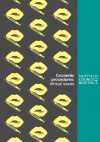 Nuffield Council on Bioethics, 2017
Nuffield Council on Bioethics, 2017This report was written by the Working Party on Cosmetic Procedures, of which I am a member.
There has been increasing demand for invasive cosmetic procedures in the UK, prompting questions about potential risks to users and the lack of regulation and professional standards in this area. This report explores ethical issues in cosmetic procedures with a particular focus on the role and responsibilities of health and scientific professionals and others in responding to demand for invasive non-reconstructive procedures that aim to enhance or normalise appearance. It engages in detailed ethical analysis and makes recommendations affecting all parts of the sector.
You can read the report here.
-
Against Marriage on BMJ blog
 Richard Smith writes in the British Medical Journal (BMJ) blog that he is persuaded by the arguments of Against Marriage. You can read the full article here.
Richard Smith writes in the British Medical Journal (BMJ) blog that he is persuaded by the arguments of Against Marriage. You can read the full article here.“Chambers is against marriage on the grounds of equality and liberty. Women are not equal with men within marriage, and the state by attaching a bundle of rights and duties to marriage creates a hierarchy of relationships with marriage at the top, making unmarried couples and single people inferior. Much of the population, including my wife and I, thinks that “common law wives” have similar rights to married women, but in fact they have none. By bundling rights and duties together, marriage (and civil partnerships) restrict autonomy; if they weren’t bundled people might choose different combinations of rights and duties.
“There is a need, Chambers accepted, for the law to regulate relationships, particularly to protect the vulnerable, but neither marriage nor civil partnership, which all the speakers criticised as being “one size fits all,” need to be that mechanism. She pointed out that parenthood might be a better basis for regulation than marriage, not least because parent-child relationships are more durable than couple relationships. Tatchell advocates a model whereby people would select “any significant other” (perhaps a best friend, sibling, or lover) and then choose among a menu of rights and duties. Such an arrangement would lead to greater equality and autonomy. All three speakers agreed that something along those lines would be better than either marriage or civil partnerships.
“And at dinner afterwards, my wife and I, despite being married for 40 years, agreed.”
-
The Politics of Marriage at LSE Forum
 Marriage is an odd mix of sex, religion, and politics. Our speakers ask what marriage is and whether there is there any distinctive moral value in it. Should the state promote it? Is it possible to have an ‘equal’ marriage, or is marriage fundamentally an oppressive institution? Should marriage be rejected in favour of civil partnerships, or something else, or perhaps nothing else?
Marriage is an odd mix of sex, religion, and politics. Our speakers ask what marriage is and whether there is there any distinctive moral value in it. Should the state promote it? Is it possible to have an ‘equal’ marriage, or is marriage fundamentally an oppressive institution? Should marriage be rejected in favour of civil partnerships, or something else, or perhaps nothing else?You can watch a video of the event and listen to the podcast here.
Speakers
Clare Chambers
Senior Lecturer in Philosophy, University of CambridgeSir Paul Coleridge
Former high court judge and Chairman, The Marriage FoundationPeter Tatchell
Activist and Director of the Peter Tatchell FoundationChair
Fellow, The Forum
Senior Lecturer in Philosophy, King’s College London - all posts on culture and religion, all posts on feminism, all posts on the body and beauty, media, watch
Dress codes at work for the BBC
-
Seminar in Contemporary Political Thought
 Seminar in Contemporary Political Thought
Seminar in Contemporary Political ThoughtConvened by Dr Clare Chambers (Philosophy) and Dr Duncan Bell (POLIS)
University of CambridgeMichaelmas Term 2017
All sessions are held on Fridays at 1 – 2.30pm in the Bawden Room of Jesus College. This is in West Court, which can be accessed either via the main entrance of Jesus College or directly from Jesus Lane.
Refreshments will be served at the close of formal proceedings. There are no precirculated papers and all are welcome.
6 Oct: Tom Shakespeare, University of East Anglia: “The UN Convention on the Rights of Persons with Disabilities: making use of the stilts?”
20 Oct: Avia Pasternak and Jeff Howard, UCL: “Criminal Acccountability, Restorative Justice, and the Moral Standing of States”
3 Nov: Katrin Flikschuh, LSE: “Philosophical Racism”
17 Nov: Bernardo Zacka, University of Cambridge: “When the Rules Run Out: Informal Taxonomies at the Front Lines of Public Service”Lent Term 2018
All seminars will be held in Upper Hall, Jesus College. Please note that this is a different room from that used by the Seminar in MT. Upper Hall is in the old part of Jesus College, enter via the Porters’ Lodge.
The seminars are held on Fridays at 1 – 2.30pm, followed by refreshments. There are no pre-circulated papers and all are welcome.
**Please note also that the third Seminar this term deviates from the fortnightly pattern, to accommodate a speaker coming from overseas.**
19th January: Cecile Laborde, University of Oxford. “Liberal Egalitarianism and the Critique of Religion”
2nd February: Heather Widdows, University of Birmingham. Title TBC.
9th February (NOTE DATE): Sam Moyn, Yale University. “The Doctor’s Plot: How Philosophizing Human Rights Began”
2nd March: Herjeet Marway, University of Birmingham. “Procreative Justice and Genetic Selection for Non-Disease Traits: The Case of Fair Skin”
-
Blackwells Festival of Philosophy

 I’ll be launching and speaking about Against Marriage at Blackwell’s bookshop, Oxford on 16th November 2017, as part of the Oxford University Press Festival of Philosophy. Register for the event here.
I’ll be launching and speaking about Against Marriage at Blackwell’s bookshop, Oxford on 16th November 2017, as part of the Oxford University Press Festival of Philosophy. Register for the event here. -
Freedom & Equality: Essays on Liberalism and Feminism
My next book is in press with Oxford University Press.
Freedom & Equality investigates the contours of feminist liberalism: a philosophical approach that is appealing but elusive. Its hallmark is a liberalism that prioritises equality and individual autonomy, while offering a rigorous critique of using individuals’ choices as the measure of justice.
Liberalism without feminism prioritises individual choice, a strategy that has played a crucial role in the liberal defence of freedom against authoritarianism and conformity. However, as feminism shows, relying on individual choice is insufficient to render an outcome just, because people often choose things that harm or disadvantage themselves. From beauty norms to the gendered division of labour, from marriage to religion, women and men choose to arrange their lives in ways that perpetuate inequality. Often, these choices are made in response to social norms, including unjust, unequal, or harmful norms. It follows that relying on individual choice as a measure of justice actually leaves unjust social structures intact. Any defender of autonomy and equality must be prepared to criticise individuals’ choices while prioritising individual choosers.
The essays in this collection cover a wide range of issues fundamental to liberalism, to feminism, and to their intersection. They explore the foundational philosophical concepts of choice, equality of opportunity, ideology, and the state. And they engage directly with key political controversies, including women’s sport, the state recognition of gender, the regulation of cosmetic and cultural surgeries, and state action to secure equality in the family.
Freedom & Equality shows that feminist liberalism is both possible and necessary. It is possible because the two doctrines of feminism and liberalism are compatible, their fundamental values of freedom and equality aligned. But feminism is necessary because liberalism has shown that it is simply not up to the task of securing gender equality and women’s liberation alone.
-
Royal Society of Medicine
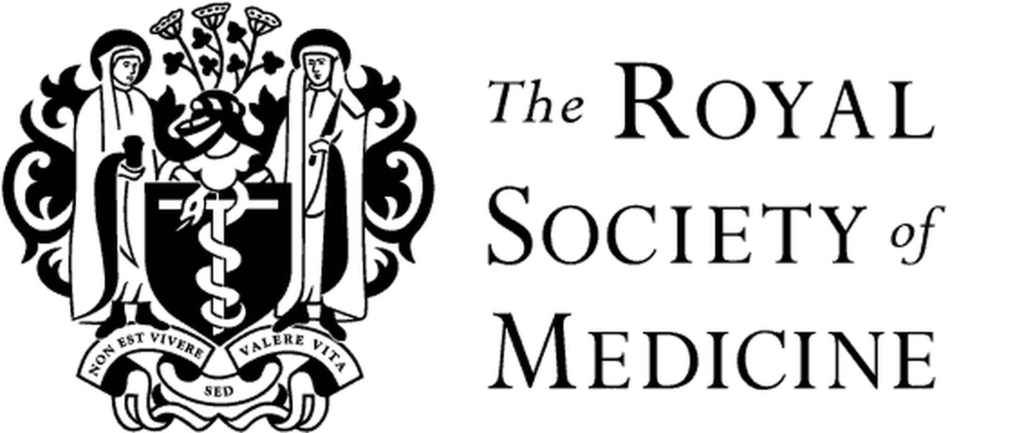
I spoke on “The ethics of cosmetic surgery” at the Royal Society of Medicine event “Changing the image of cosmetic surgery: patients before profit” in October 2017. Find details here.
-
Alumni Festival
I am speaking on “Should the State Recognise Marriage?” at the University of Cambridge Alumni Festival on 22nd September 2017. Details are here.
-
Joint Session 2017

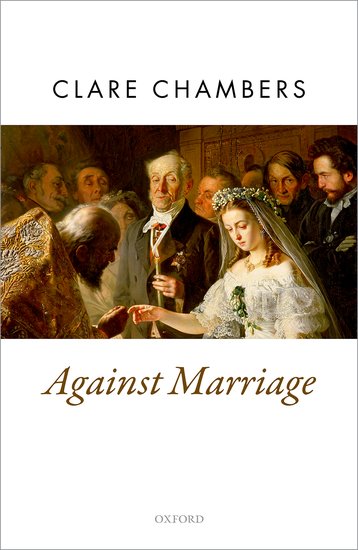




 Can your employer demand that you go to work naked? In this short
Can your employer demand that you go to work naked? In this short 

